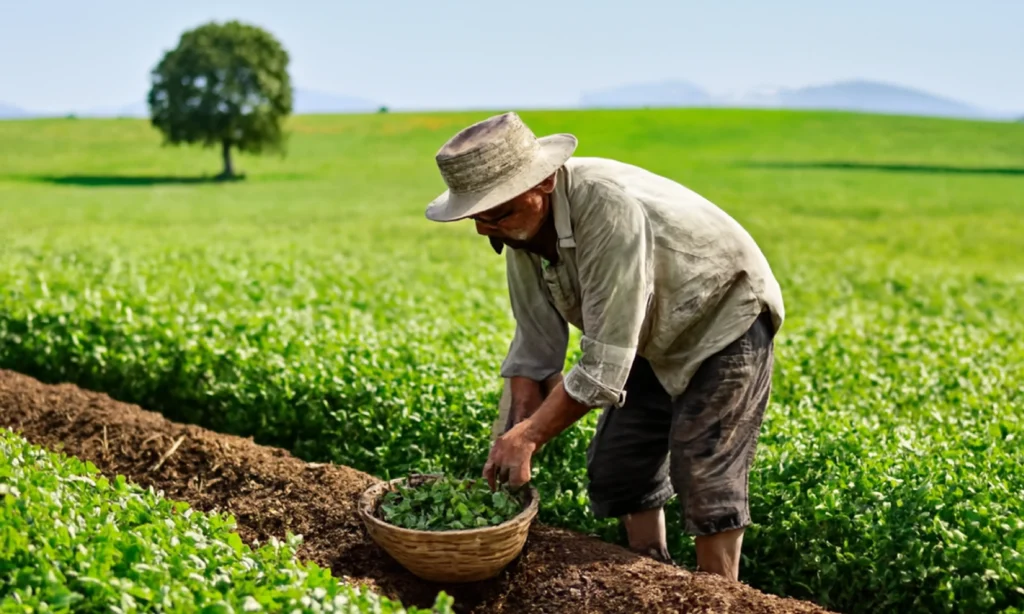The agricultural industry in Greece will provide a lot of jobs to both local and foreign laborers who want to earn a steady income in the Mediterranean environment. The knowledge of the salary range of agriculture laborers may assist you in making the right choices regarding working in the field of that necessity.
This is a guide to the monthly wages of agriculture workers in Greece, as well as the factors that affect the wages, regional differences, and what to expect when you enter this profession. This information will assist you in knowing the financial status of agricultural work in Greece, whether you are planning to work seasonally or on a long-term basis.
Overview of Agriculture Labor in Greece
The agricultural industry in Greece provides about 11 percent of the total labor force in the country and it is a major sector in the national economy. The sector covers a variety of crops such as olives, grapes, citrus fruits, vegetables, and cereal crops in the country with varied landscapes.
Farming in Greece is usually seasonal in nature with the highest demand during planting and harvest seasons. Most of the jobs are seasonal, but some farms provide year-round employment to skilled workers or supervisory workers.
The industry depends on the presence of Greek citizens and foreigners who work as migrants especially those of Eastern Europe and South Asia who are important during peak farming periods.
Monthly Salary Ranges for Agriculture Laborers
Entry-Level Agricultural Workers
The average wage of new agricultural workers in Greece is 450-600 Euros per month. Such jobs typically have low experience requirement and the jobs involve simple duties like:
- Picking of fruits and vegetables
- Simple agriculture care
- Agricultural products loading and unloading
- General farm support
The minimum wages are usually in line with the minimum wage requirements in Greece and this gives a base to new workers in the agricultural industry.
Experienced Agricultural Workers
Those workers who have experience in the agricultural sphere of 2-5 years could count on salaries up to 600-800 euro per month. Such jobs usually involve:
- Use of simple agricultural machineries
- Crop handling methods Specific crop handling methods
- Quality controlling duties
- Developing new employees
Knowledge and experience on certain crops or farming techniques can earn more in this wage bracket.
Skilled Agricultural Technicians
Experienced technicians and skilled workers are paid between 800-1200 euros a month. Such roles involve certain knowledge and can involve:
- Management of Irrigation systems
- Greenhouse operations
- Use of pest control Pest control application
- Equipment maintenance
- Livestock handling
Supervisory and Management Jobs
Depending on the size and duties of the farms, farm supervisors and agricultural managers can receive between 1200-2000 euros or even more a month. These jobs normally demand:
- Leadership experience
- Knowledge of agriculture Technical
- Administrative skills
- Knowledge of Greek and frequent knowledge of English
Factors Affecting Agricultural Wages
Geographic Location
There is a great disparity in salaries in Greek regions. Northern regions such as Macedonia and Thrace tend to have higher wages because of the larger farming activities. Island sites can be charged higher prices because of transport and shortage of labor.
The wages may also be affected by the closeness to big cities, where farms in the urban areas compete with other sectors in attracting workers.
Seasonal Demand
High seasons have a drastic impact on the earning capacity. It is common to find harvest seasons of major crops such as olives (October-February) and grapes (August-September):
- Overtime opportunities
- Bonus payments
- High rates per hour
- Longer hours of working
Those workers capable of seasonal migration between regions tend to maximize their annual income.
Crop Type and Farm Size
The compensation rates are different in different agricultural sectors:
Greenhouse Operations: is frequently more stable with year round employment with regular monthly payment.
Olive Farms: Seasonal employment with a possible increase of the daily pay at harvest.
Vineyards: They may have a special job with high wages to skilled laborers.
Livestock Farms: They usually offer stable jobs with monthly salaries.
The bigger commercial farms tend to have more organized pay rates and benefits than the smaller family farms do.
Legal Status and Documentation
Properly documented workers and those who have legal working permits are usually better paid and get better working conditions. Illegal immigrants experience a lot of:
- Sub-minimum pay
- Unregular payment plans
- Weak law enforcement
- Limited job mobility amongst employers
Benefits and Additional Compensation
Housing and Accommodation
Most agricultural employers offer housing on the farms especially to seasonal workers. This advantage can save a lot of living costs and actually boost after-tax pay.
Depending on the level of the position and the employer, the quality of living accommodation is very different, ranging between simple dormitory-like housing and separate apartments.
Meal Provisions
On some farms the meals are part of the compensation package especially during peak seasons when the workers work long hours. Such advantage can spare employees up to 200-300 Euros of food cost per month.
Transportation
Employers can also offer transport to and fro work sites particularly to workers residing in towns or cities near the work sites. The advantage is especially useful in rural regions where there is no widespread public transportation.
Healthcare and Insurance
Employer contributions usually provide access to Greece public healthcare system to legal employees. There are other larger farming enterprises that offer supplementary health insurance.
Performance Bonuses
Experienced employees can be given performance-based rewards in good harvest seasons or when they meet certain productivity goals.
Regional Salary Variations
Northern Greece (Macedonia, Thrace)
The area usually provides the best payment in agriculture and monthly salaries are 10-15% higher than national averages. The high-scale agricultural production of the area and its closeness to the European markets are also factors that lead to the increased levels of compensation.
Central Greece (Thessaly, Central Macedonia)
The wages in agricultural sector in central regions are usually at par with the national average and provide stable jobs in various categories of crops.
Southern Greece (Peloponnese, Attica)
Although certain regions pay competitive salaries, the nearness to Athens may be equally advantageous and disadvantageous since the living expenses may balance the wage benefits.
Greek Islands
The agricultural labor in islands can be well paid because of transportation expenses and scarcity of labor but the work can be less available and seasonal.
Career Development and Increment in Salary
Skill Development Opportunities
The agricultural workers can raise their earning capacity by:
- Certification of the use of machinery
- Training in handling crops specially
- Improvement of language skills
- Leadership development
- Technical farm training
Advancement Pathways
The advancement of career in Greek agriculture usually follows the following stages:
- General Laborer (€450-€600/month)
- Skilled Worker (€600-€800/month)
- Specialized Technician (€800-€1,200/month)
- Supervisor (€1,200-€1,600/month)
- Farm Manager (€1,600-€2,000+/month)
Long-term Employment Benefits
Employees that develop long-term relationships with employers tend to receive:
- Raises every year
- Expanded responsibilities
- A steady job is ensured.
- Other benefits and rewards
Practical Considerations for Job Seekers
Language Requirements
Although not all agricultural jobs need a person to speak Greek, simple communication skills can greatly enhance the chances of getting a job and the salary. Employees who are communicative tend to progress faster in companies.
Physical Demands
Farming is a physically intensive activity that needs endurance and strength. The workers should be ready to:
- Working long hours in seasons of peak workloads
- Work outdoors in the different weather conditions
- Monotonous bodily activities
- Start time in the morning Early
Legal Documentation
Appropriate authorization of work is a key to accessing more paying jobs and legal safeguards. Workers are advised to make sure that they have:
- Legal working papers
- Right visa status
- Tax identifications numbers
- Registration of social security
Making the Most of Agricultural Employment
The salary situation of agricultural workers in Greece can be a good piece of information to any person who is interested in this profession. Entry-level jobs are not well compensated, but with time the chances of growth and improvement in skills may translate to higher earnings.
Because a lot of farm work is seasonal, it involves financial planning and flexibility, yet workers who accept the challenge usually enjoy rewarding careers in the agricultural sector, which is very important in Greece. The key to success in this area is hard work combined with the ability to develop a career strategy, master a foreign language and establish good contact with employers.
People interested in working in agriculture in Greece should research specific opportunities in a particular area, learn seasonal trends, and be ready to work physically. Agricultural work can be a stable source of income and a great working experience in one of the most historically important agricultural areas in Europe with the right preparation and expectations.



